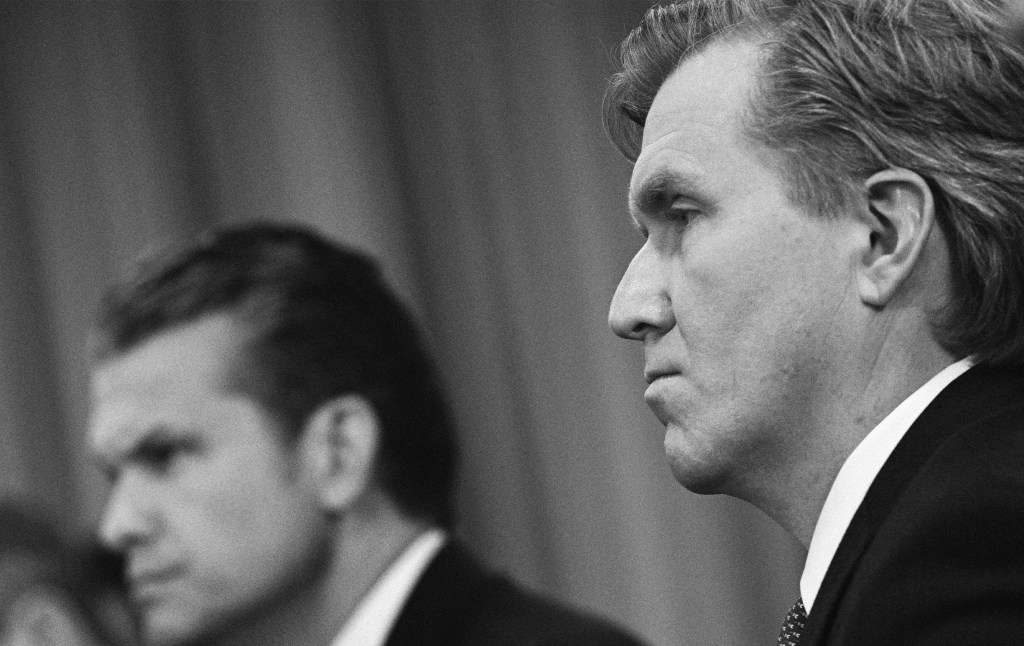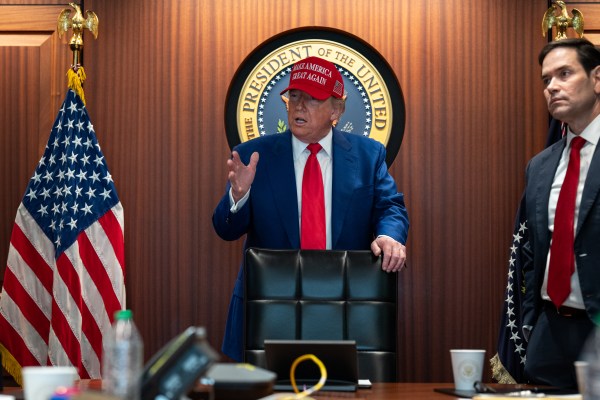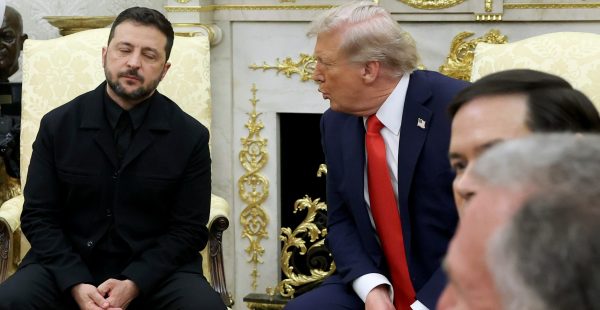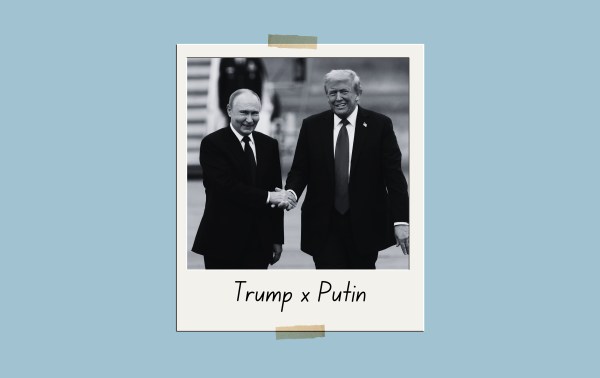Who is in charge at the Pentagon? It can be difficult to tell these days, as the last two weeks of confusion over a controversial pause in military aid to an ally can illustrate. Strap in, because this is a story with more twists and turns than a cheap garden hose.
Last week, the Trump White House confirmed reporting that the Department of Defense had stopped scheduled shipments of munitions to Ukraine in its fight against Russia. “This decision was made to put America’s interests first following a DOD review of our nation’s military support and assistance to other countries across the globe,” Anna Kelly, a White House spokeswoman, said.
The pause on aid was a remarkable fulfillment of a proposal that had been debated internally at the Pentagon for months, despite the fact that Congress had already appropriated funds for the military aid. But the move shocked pro-Ukraine lawmakers, world leaders, and administration officials alike. It also cut against President Donald Trump’s own recent warming to the idea of providing more weapons to the Ukrainians. Indeed, news outlets reported this week that Trump himself was caught “flat footed” by the decision, which was incongruous with his statements over the July Fourth weekend that he wanted to deliver more air defense aid to Ukraine, on top of what was already scheduled.
And when asked earlier this week by CNN’s Kaitlan Collins about who ordered the pause, Trump responded, incredibly, “I don’t know, why don’t you tell me?”
Despite Trump’s stated ignorance, the answer was already widely known throughout national security circles in Washington, and further reporting corroborated the story: Elbridge Colby, the under secretary of defense for policy and among the most powerful officials at the Pentagon, was the one who “prompted” the decision to stop the munitions. Colby is one of the foremost proponents of foreign policy realism and an express supporter of reorienting America’s military focus on China and away from Europe and the Middle East.
(Unusual for a high-level Republican appointee but in line with a new generation of conservative skeptics of American hegemony, Colby has at times sounded more like the restraint-minded policymakers who filled the administrations of Barack Obama and Joe Biden. Perhaps it’s not surprising that Colby, after having served roughly a year at the Pentagon during Trump’s first term, went on to work at WestExec Advisors, a national security consulting firm started by Obama and Biden officials, including Michèle Flournoy and Antony Blinken.)
Colby’s push for the Ukraine weapons pause has not endeared him to everyone at the Pentagon, as Politico documented earlier this week, with the outlet calling it just one of Colby’s actions in a “series of rapid-fire moves that have blindsided parts of the White House and frustrated several of America’s foreign allies.”
So was Colby freelancing on the Ukraine aid pause? Not officially. The Defense Department has said that Colby’s boss, Defense Secretary Pete Hegseth, authorized the pause—which the Trump administration has now partially reversed—as part of a “review process” of munitions stockpiles. That would be in line with Hegseth’s own stated preference for European allies to take a larger stake in the outcome of Russia’s war on Ukraine.
However, CNN reported on Tuesday that Hegseth did not inform the White House about the initial pause, and that both Secretary of State Marco Rubio and Keith Kellogg, the U.S. special envoy to Ukraine, apparently first learned of the move from news reports. And while the Pentagon has denounced the CNN story as a “fabrication,” the department’s official statement does not deny that Hegseth did not tell Trump he was implementing a pause, only that he “provided a framework for the President to evaluate military aid shipments and assess existing stockpiles.” White House press secretary Karoline Leavitt told CNN that Hegseth had provided the review but that Trump had decided to “continue providing defensive weapons to Ukraine.”
That’s enough to make your head spin, so let’s recap: The Pentagon ordered the pause. The White House affirmed the pause as administration policy. Everyone in Washington supportive of continuing Ukraine aid, including within the Pentagon, raised a fuss. The president himself said he didn’t know who ordered the pause. Then the Pentagon claimed the pause wasn’t really a pause but part of a “review process” and, actually, was more of a “framework” for the president to make a policy decision. And ultimately, Trump’s decision was to reverse what his White House had originally asserted was administration policy. Got it?
The whole episode leaves us with more questions than answers.
If Colby’s decision to halt the weapons shipments got approval from Hegseth and the White House, why was Trump surprised by the decision and so quick to undermine and eventually reverse it? If the Pentagon did, in fact, tip off the White House about the pause, but Trump and Rubio (who is also serving at the White House as national security adviser) were unaware, which White House official did know about it? If it’s true that the Pentagon merely provided the White House with the proposal to pause the shipments and that the president decided to act otherwise, why did a spokeswoman for the White House provide an earlier statement confirming that the pause had been implemented?
And if what really happened is the simplest explanation—that the Pentagon, under Colby’s influence and at Hegseth’s direction, tried to implement the pause on their own and against the desires of the president—why does Trump still have “full confidence in the Secretary of Defense,” as Leavitt has claimed?
Hegseth, Colby, and all of the Pentagon brass serve at the pleasure of the president, so the buck ultimately stops with Trump. But the dysfunctional communication surrounding a fairly monumental policy decision is just the tip of the iceberg when it comes to procedural dysfunction. And so the biggest question remains: Who, exactly, is in charge here?










Please note that we at The Dispatch hold ourselves, our work, and our commenters to a higher standard than other places on the internet. We welcome comments that foster genuine debate or discussion—including comments critical of us or our work—but responses that include ad hominem attacks on fellow Dispatch members or are intended to stoke fear and anger may be moderated.
With your membership, you only have the ability to comment on The Morning Dispatch articles. Consider upgrading to join the conversation everywhere.